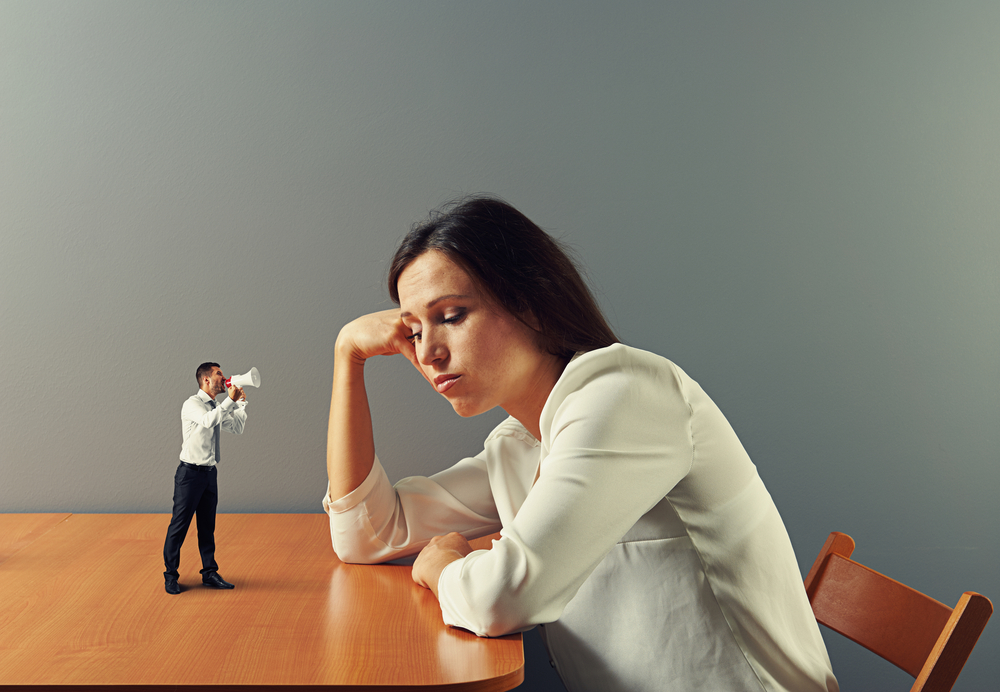Do you get Listening Fatigue?
Hearing is hard! Just like your legs get sore after a good run and your eyes tire after long periods of reading or watching TV, your ears get worn out listening to sounds and speech. They get tired even faster if you have hearing loss, because your ears work harder to hear, decipher and interpret speech, noise and sound all at once.
Listening fatigue is all too common, and in many cases it can be mistaken for laziness, rudeness or simply not caring. We asked our social media community about their experiences with listening fatigue and any tips they had to handle it. We also spoke to our in-house audiologists for some other tips to battle listening fatigue. Check out these great answers and helpful tips from our fans and audiologists, and feel free to comment with your experience or tip in the comments below. Visit us on Facebook to ‘like’ our page and join the conversation.
“Conferences and training—it’s always after lunch. Is that listening fatigue or does EVERYONE start flagging after lunch?”— @PositiveHearing
“I also experience listening fatigue especially when attending our yearly retreat and spend much time listening (some of that listening being in a big group with many other people talking at once…something that’s often very tiring brain wise). – Lora S.
Tip to combat: Grab a quick nap if you’re out on retreat or vacation. If you had a busy morning and still have to work the afternoon, take a brisk 10-15 minute walk alone outside with no music or phones. Also, make sure you get enough sleep each night so you aren’t already tired in the morning.
“Telephone calls. Sometimes the caller is so quiet, nothing works.” – Gary E.
Tip to combat: Sometimes stereo sound can help immensely in speech perception, especially over the phone, which is an instance in which visual cues are not available. Wireless hearing devices paired to a mobile device will allow for the phone conversation to stream in stereo. Another great option is to use FaceTime with our Made for iPhone technology. That way you get both stereo sound and visual cues!
“Sometimes I don’t even realize that I am fatigued but I do notice I just want to sit an think. Then it occurs to me what I really want is to rest from trying to make meaning out of conversations. I am fatigued at various times of the day, but if I can grab 15-30 minutes of less intense listening time, I can usually keep going.” – Crystal S.
Tip to combat: Take quiet-time breaks during the day to relieve your ears. Find a quiet place to sit and be alone or take a walk outside.
“I see many patients that suffer from hearing fatigue, especially in the late afternoon. Seems to mostly be associated with high frequency loss. Those that strain to hear conversation in noise simply are tried of trying to hear by the end of the day. Many times, with proper amplification, sound is renewed and listening becomes easy again.” – CW D.
Tip to combat: Wear hearing aids that are fitted and programmed specifically for you. Hearing aids alleviate your ears of much of their work and allow sounds and speech to be heard easier, which enables your ears to interpret and process sounds easier and faster. Hearing aids significantly reduce listening fatigue when fitted and programmed properly.
“By evening, I am at my limit trying to hear and understand conversations in a group, people who speak softly or mumble, and trying to watch TV shows where background music is so loud you can’t hear.” –Patricia D.
Tip to combat: Sometimes you just need a break, and by the end of the day, it’s ok to just remove yourself from a situation and take a break from listening. Mute the TV or radio and find some quiet time at night to just read a book alone. Silence can go a long way in relaxing your ears and yourself.
“I’ve had a high-frequency loss since I was three and always felt exhausted trying to make out what everyone was saying as a young child in school and definitely at home. From my 18 years experience with listening fatigue, it never disappears as one with hearing loss inevitably struggles and strives to hear, draining more physical energy than that of an average hearing person. Using the audio streaming and a variety of geo location adjustment settings with my new Starkey Halo hearing aids through the TruLink app on my iPhone helps decrease the listening fatigue, as streaming makes it a lot less work for me to listen and enables me to hear much more!” – Amanda M.
Tips to combat: Use audio-streaming and geo-location adjustment settings on Starkey Halo hearing aids through the TruLink app to automatically adjust for various environments.
Do you have additional comments or questions about listening fatigue? Post them below and we’ll have a Starkey Au.D. answer!
